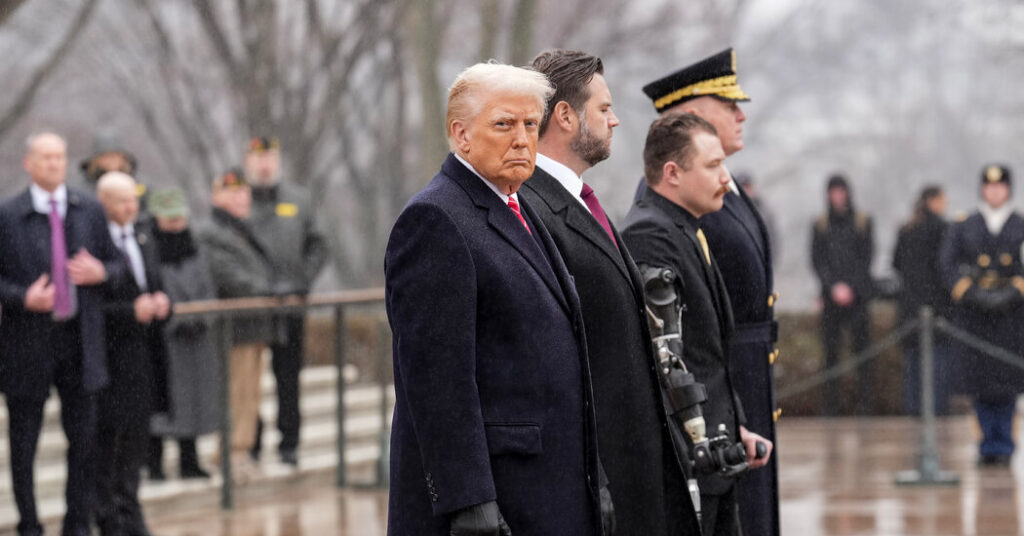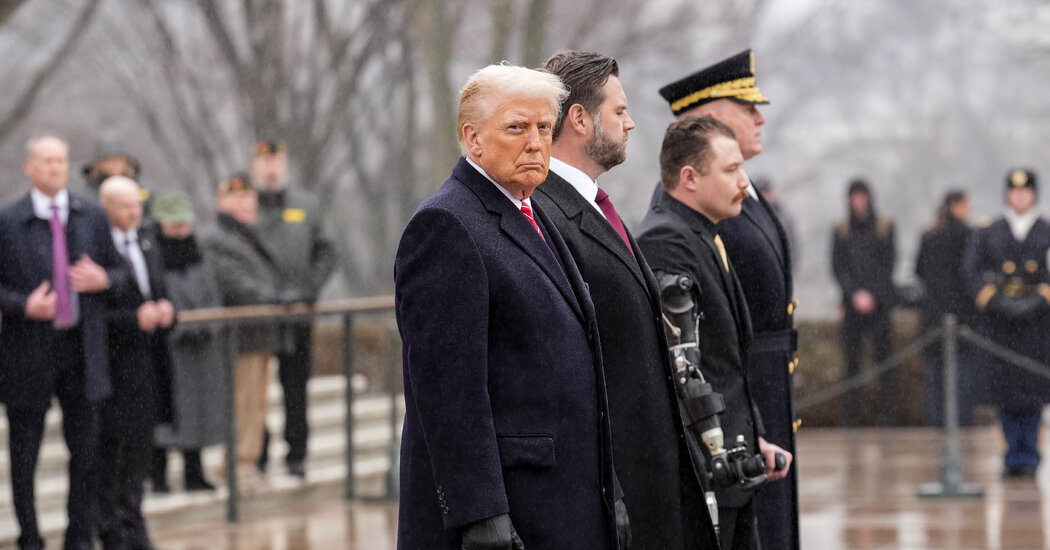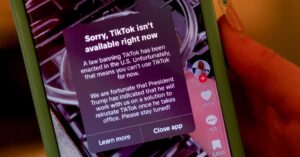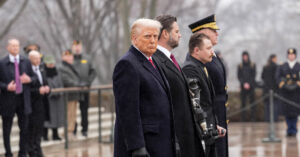Trump Signs Executive Order in Attempt to Delay TikTok Ban
Shortly after taking office Monday, the president issued the order to delay the app’s ban for 75 days. The law went into effect on Sunday.


President Trump signed an executive order on Monday to delay enforcing a federal ban of TikTok for 75 days, even though the law took effect on Sunday and it is unclear that such a move could override it.
The order, one of Mr. Trump’s first acts after taking office, instructs the attorney general not to take any action to enforce the law so that his administration has “an opportunity to determine the appropriate course forward.” The order is retroactive to Sunday.
As he signed the order, Mr. Trump told reporters that “the U.S. should be entitled to get half of TikTok” if a deal for the app is reached, without going into detail. He said he thought TikTok could be worth a trillion dollars.
The order could immediately face legal challenges, including over whether a president has the power to halt enforcement of a federal law. Companies subject to the law, which forbids providing services to Chinese-owned TikTok, may determine that the order does not provide a shield from legal liability.
The federal law banning TikTok, which is owned by ByteDance, mandated that the app needed to be sold to a non-Chinese owner or it would be blocked. The only workaround provided by the law is a 90-day extension if a likely buyer is found. Even then, it is unclear if that option is viable, given that the law is already in effect. The law also restricts how much of a TikTok stake can remain under foreign ownership.
By seeking to override the federal law, Mr. Trump raised serious questions about the limits of presidential power and the rule of law in the United States. Some lawmakers and legal experts have expressed concerns about the legality of an executive order, particularly in the wake of a Supreme Court ruling that upheld the law on Friday and the national security concerns that prompted legislators to draft it in the first place.







